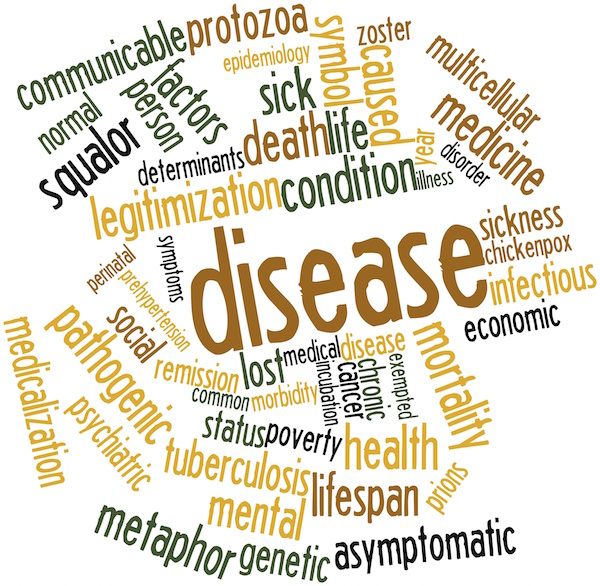
TUESDAY, Oct. 18 (HealthDay News) — In an important first, a new vaccine has been shown to cut the risk of malaria in young African children by about half, according to research announced Tuesday.
Although the effectiveness shown in this Phase 3 trial is far less than the near-100 percent effectiveness often seen in childhood vaccines for other illnesses in the West, the findings are promising, given that malaria kills some 800,000 people in sub-Saharan Africa alone each year.
“This potentially translates into [the prevention of] tens of millions of cases of malaria in children,” said Dr. Tsiri Agbenyega, a principal investigator of the trial.
Other experts agreed.
“This is really important because it’s a viable strategy against a major killer of children in the world,” added Dr. Kenneth Bromberg, chairman of pediatrics and director of the Vaccine Research Center at the Brooklyn Hospital Center, New York City.
This is also the first vaccine that is successful against a parasite, in this case Plasmodium falciparum, which causes mosquito-transmitted malaria.
The results — the first from the Phase 3 trial — were announced Tuesday at the Malaria Forum hosted by the Bill & Melinda Gates Foundation in Seattle, and published simultaneously online in the New England Journal of Medicine.
The trial was funded by GlaxoSmithKline (GSK) Biologicals and the PATH Malaria Vaccine Initiative, which are developing the vaccine together with African research centers.
Speaking at a news briefing Tuesday, Andrew Witty, CEO of GSK, said he is “hopeful we’re going to be able to bring the vaccine to children in Africa perhaps as early as 2015.”
The trial enrolled more than 15,400 children from seven countries in sub-Saharan Africa in two age groups: 6-12 weeks old and 5 to 17 months.
Children were assigned to one of two groups, one receiving the vaccine (called RTS,S/AS01) and the other receiving a placebo. Seventy-five percent of both groups also followed conventional preventive measures, namely the use of insecticide-treated bed nets in the home.
Tuesday’s announcement addressed only the results from 6,000 children in the older age group who were followed for a year after vaccination.
For infants 5 to 17 months old, three doses of the vaccine reduced the rate of severe malaria by 47 percent and less-severe cases, characterized by fever and chills, by 56 percent. Severe malaria can affect the blood, brain, or kidneys and can be fatal.
The less impressive results in regards to the more severe malaria cases was not surprising given that similar results had been seen in the Phase 2 trial, said Agbenyega, who is also chair of the Clinical Trials Partnership Committee, a collaboration of scientists, academic partners and others engaged in malaria prevention.
“Obviously, one would want to have higher efficacy [effectiveness] when it comes to severe disease, but we’re hoping we can still improve on the vaccine as we go along,” he added.
In both groups together, the vaccine cut the rate of malaria by about 35 percent.
“To me, that means it’s less effective in younger kids,” said Bromberg.
Babies, in particular, are vulnerable to a whole host of infectious diseases, including malaria.
“Children have a relative immune deficiency between the time they lose their antibodies from their mother until their own immune system kicks in at 6 to 9 months,” explained Dr. Bruce Hirsch, attending physician in infectious diseases at North Shore University Hospital in Manhasset, N.Y. “A vaccine like this could help bridge that gap.”
While noting that the results were “gratifying,” Hirsch also cautioned that “the efficacy rate is not 100 percent and … these are preliminary results.”
Side effects were about the same in both groups and “were what you might typically see with other childhood vaccines — low-grade fever and some swelling at point of injection,” said Agbenyega.
Seizures in participants were attributed to malaria.
Data on the 6- to 12-week age group should be available by the end of 2012, said Agbenyega.
The authors are also awaiting 30-month follow-up safety and efficacy data by the end of 2014.
Calling the trial results a “promising advance,” the U.S. Centers for Disease Control and Prevention said the vaccine builds on already successful efforts to beat back malaria in poorer countries.
“The vaccine provided this protection in settings where there is ongoing use of other effective malaria prevention and treatment interventions: bed nets, antimalarial drugs, indoor residual insecticide spraying to prevent mosquito-borne transmission, and drugs to protect pregnant women and their fetuses from malaria’s adverse effects,” the CDC said in a news release.
Efforts to help prevent malaria in these ways are working, the agency said, and “many countries have seen decreases of up to 50 percent in deaths of children younger than 5 years.”
The final results of the vaccine trial will eventually be submitted to health regulators in Europe and elsewhere for approval. There are no plans to file for approval from the U.S. Food and Drug Administration at this point.
According to Witty, GSK plans to make the vaccine available “at the lowest price possible,” with only a 5 percent profit margin, which will be reinvested into research into malaria and “other neglected tropical diseases.”
More information
Learn more about malaria at the U.S. Centers for Disease Control and Prevention.

